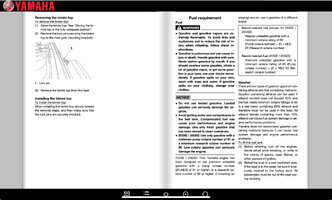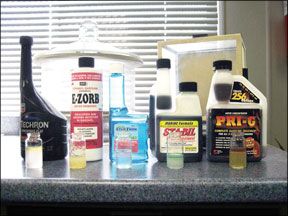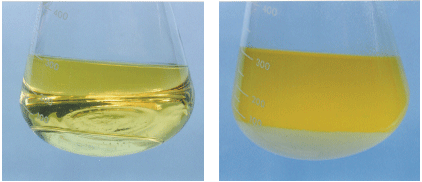Paul in Ohio
Active Member
- Messages
- 16
- Reaction score
- 18
- Points
- 32
- Location
- Marblehead, OH (Lake Erie)
- Boat Make
- Yamaha
- Year
- 2024
- Boat Model
- 252SE
- Boat Length
- 25
Hi,
My Yamaha 252SE has 50 hours since I bought it new last year. I just noticed that the owner's manual specifies premium gasoline- 91 octane. I'm pretty sure that my engines are not supercharged or turbocharged; they are the standard 200 HP engines with standard 8.5:1 compression ratio.
I have been running 87 octane unleaded fuel from the auto service station since new, with zero problems. My boat will top out at 46 MPH. My understanding is that these computer controlled engines can adjust themselves to run on lower octane when detected, without pinging.
Of interest, my 2008 Yamaha WaveRunner FX-140 specifiies minimum octane of 86, and has a compression ratio of 11.4:1. I have run 87 octane ethanol fuel in it for 17 years without any issue.
Can people share their thoughts on using 87 octane fuel in their Yamaha jet boats? (I am not really interested in pursuing the ethanol vs. non-ethanol argument; I personally use 10% ethanol fuel in everything except lawn equipment, without issue)
A second question:
I read somewhere that there is no serviceable fuel filter on my boat, only a screen installed in the tank-mounted fuel pump, that is a pain to access. I am thinking of adding an inline fuel filter (similar to this one Amazon.com
Amazon.com
My goal is to prevent the factory screen from EVER needing to be removed, by capturing any sediment in a good quality filter.
Any comments on the idea of adding inline fuel filters? Does anybody know what size i.d. rubber fuel line is used on these engines?
My Yamaha 252SE has 50 hours since I bought it new last year. I just noticed that the owner's manual specifies premium gasoline- 91 octane. I'm pretty sure that my engines are not supercharged or turbocharged; they are the standard 200 HP engines with standard 8.5:1 compression ratio.
I have been running 87 octane unleaded fuel from the auto service station since new, with zero problems. My boat will top out at 46 MPH. My understanding is that these computer controlled engines can adjust themselves to run on lower octane when detected, without pinging.
Of interest, my 2008 Yamaha WaveRunner FX-140 specifiies minimum octane of 86, and has a compression ratio of 11.4:1. I have run 87 octane ethanol fuel in it for 17 years without any issue.
Can people share their thoughts on using 87 octane fuel in their Yamaha jet boats? (I am not really interested in pursuing the ethanol vs. non-ethanol argument; I personally use 10% ethanol fuel in everything except lawn equipment, without issue)
A second question:
I read somewhere that there is no serviceable fuel filter on my boat, only a screen installed in the tank-mounted fuel pump, that is a pain to access. I am thinking of adding an inline fuel filter (similar to this one
My goal is to prevent the factory screen from EVER needing to be removed, by capturing any sediment in a good quality filter.
Any comments on the idea of adding inline fuel filters? Does anybody know what size i.d. rubber fuel line is used on these engines?




